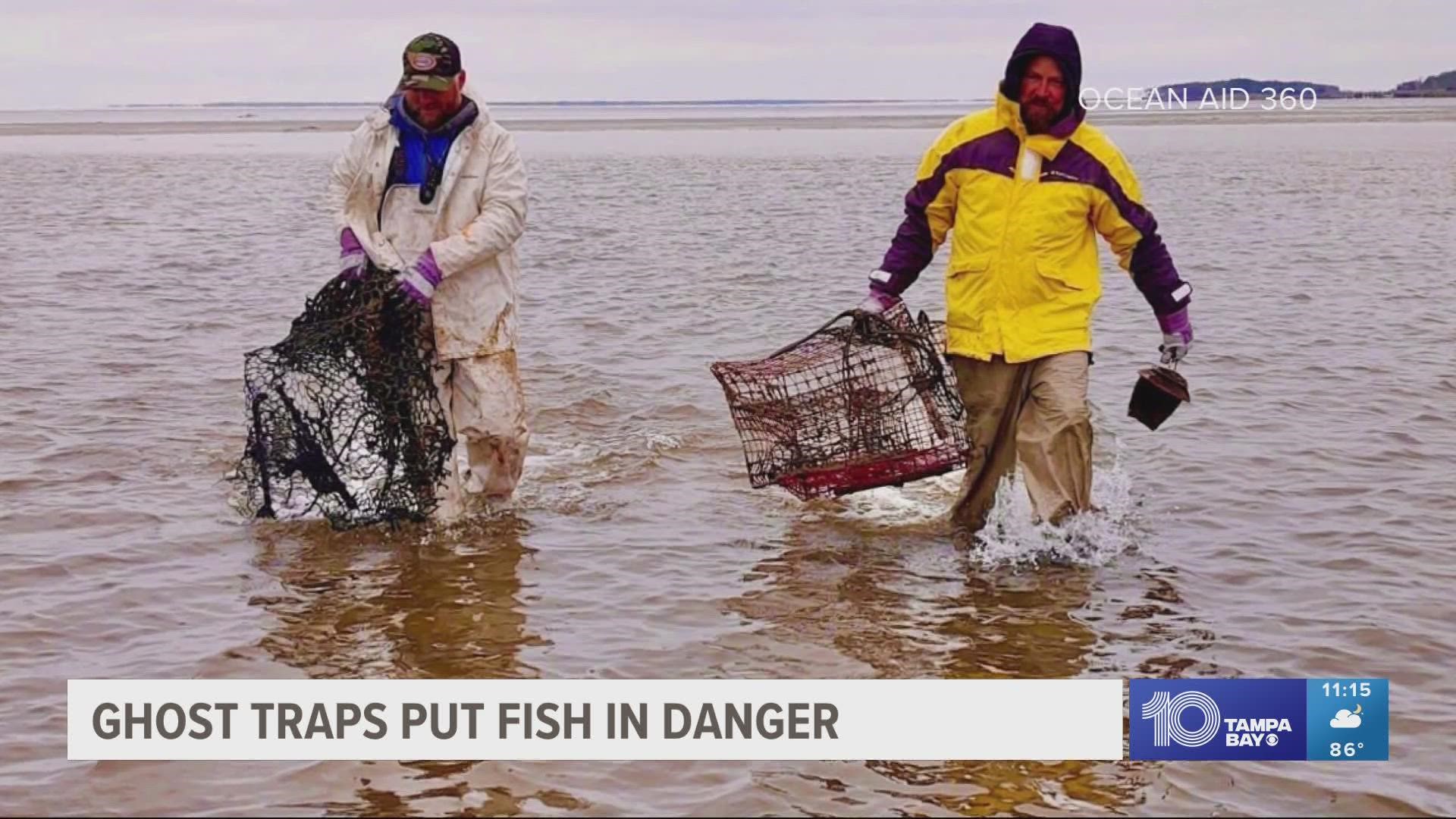CLEARWATER, Fla. — A baby dolphin was rescued on Wednesday under Pier 60 in Clearwater after getting tangled in the remnants of a crab trap.
After an unsuccessful attempt to reunite the calf with its mother, Clearwater Marine Aquarium decided to release it back into the wild. But, the dolphin appeared lethargic and struggled to swim away, leading to the decision to bring the calf to SeaWorld for rehabilitation.
And, remember Winter? CMA's dolphin-turned-movie star, who died in 2021, was also trapped in a crab trap as a calf. It was the rope of that tightly-wound trap that caused Winter to lose her tail flukes.
It's stories like these that highlight a problem that conservationists have been trying to curb for years: ghost fishing.
What is ghost fishing?
Ghost fishing is a term to describe what happens when pieces of derelict fishing gear "continue to fish," according to the National Oceanic and Atmospheric Administration.
In other words, gear that is discarded, lost or abandoned continues to trap fish and animals, which can harm or kill them. The derelict traps, lines and nets can also destroy habitats, wrap around boats' rudders and propellers and compete with active fisheries trying to catch species that are important to the economy.
How big of a problem is it?
Researchers say it's hard to know exactly; but based on recent reports, there are thousands of pounds of potentially harmful marine debris floating in Florida waters.
Approximately 63,000 derelict traps were removed from the state between 2007 and 2019, according to a report by the Florida Fish and Wildlife Conservation Commission.
During a 2021 project, NOAA divers removed derelict lobster traps, fishing gear and trash, including more than 9 metric tons of marine debris and 30,000 feet of fishing line and rope from the Florida Keys.
Should I remove a ghost trap if I see it in the wild?
In Florida, tampering with traps, lines or buoys that do not belong to you (even if they're abandoned) could result in a third-degree felony conviction, fines of up to $5,000 and the permanent revocation of your fishing privileges, FWC explains.
So, no — you shouldn't pick up any derelict gear on your own, but you can volunteer with groups that are authorized to remove it.
You can sign up for a group cleanup with the FWC or join Clearwater Marine Aquarium's annual Ghost Trap Rodeo.

